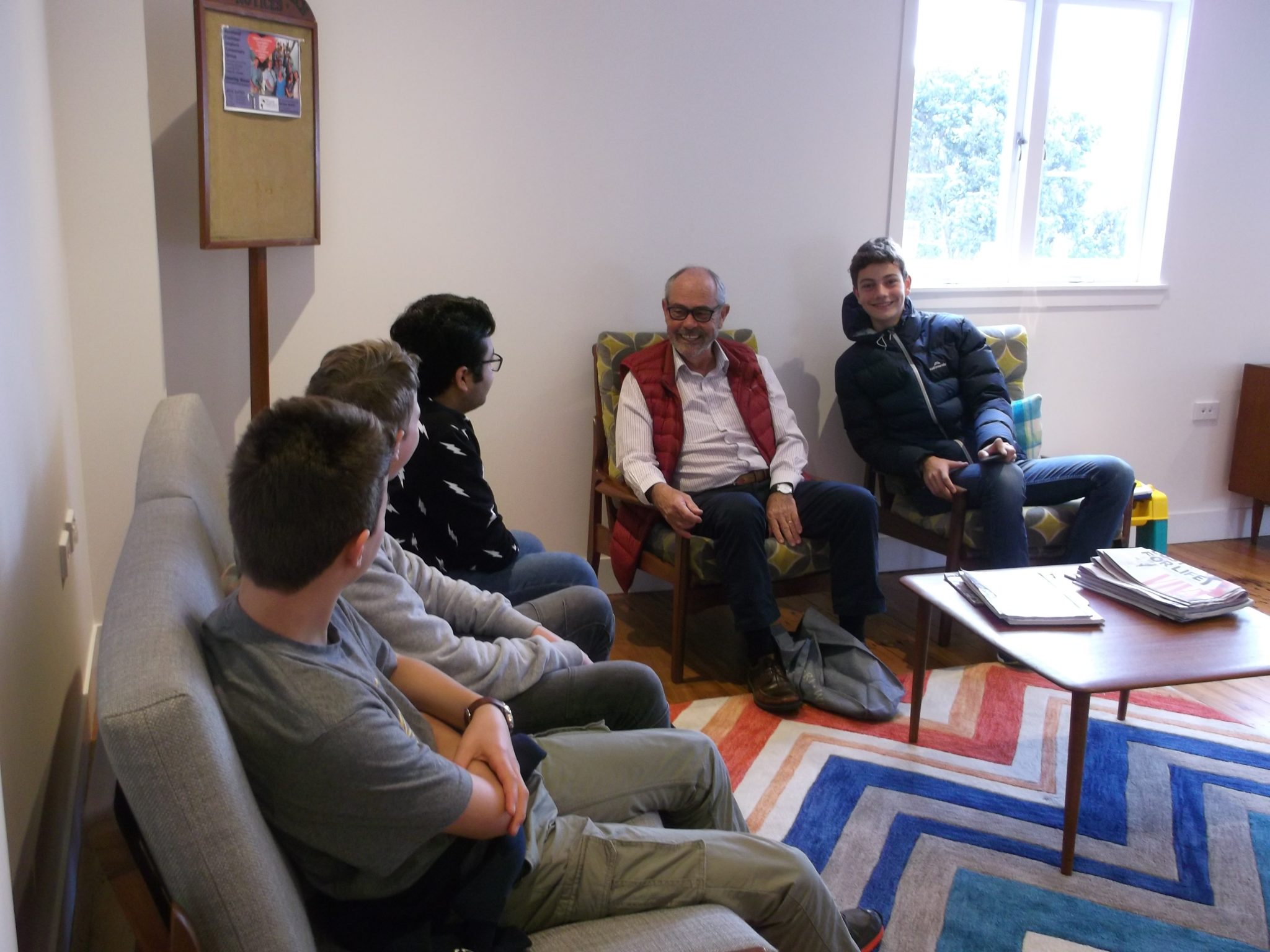Last Tuesday was International Stuttering Awareness Day and one of our clients, Felix, decided to send an email out to all his work colleagues to “put himself out there a bit more and to raise awareness”. We think this was a wonderfully proactive step on Felix’s part. He received some great feedback from his colleagues including how brave he was for sharing his story and they really appreciated his honesty. Here at START, we know that being open about stuttering can be scary but also liberating and it can also help to alleviate some of the anxiety and fear that comes with hiding stuttering. Being open about the fact you stutter is also a great opportunity to educate people about stuttering. Thanks so much for sharing your story with us Felix and allowing us to share it with the wider START community.
Kia Ora,
As most of you already know or might find out now… I am a person who stutters. I have stuttered since I can remember and have seen many Speech Language Therapists throughout my life. Being able to communicate and participate in life is easily something that most of us take for granted but can seem like a massive obstacle for a person who stutters.
Unfortunately, there is very little awareness but quite a few myths and misconceptions out there about stuttering. The best way to tackle these myths and misconceptions and consequently live a happier and fuller life as a person who stutters is to start conversations, raise awareness and communicate openly about stuttering to normalise and de-stigmatise.
So…why do we hear/know so little about stuttering? Well, stuttering is invisible until you hear
someone speak and people who stutter are masters of disguise which can leave other people in their life completely unaware of their stutter. People who stutter have learned ways/strategies or adapted to lifestyles (usually avoiding words or situations or even saying nothing at all) which allows them to hide their stutter. These behaviours can be driven by feelings of shame, embarrassment, frustration, fear of judgment, low self-esteem, anxiety, experiences of discrimination and bullying, etc. This has huge impact on the quality of a person’s life and their well-being.
Stuttering is not a physical or cognitive disability. Stuttering is not a reflection of a person’s
intelligence. Trust me, a person who stutters knows exactly what they want to say, they just find it difficult to get the words out sometimes. This goes beyond the hesitation or repetition everyone experiences sometimes when speaking. In fact, people who stutter often bring very valuable strengths and qualities to the table, such as resilience, empathy, compassion, listening skills and creativity. Some of the brainiest and most famous people in this world stutter/stuttered, e.g. Marilyn Monroe, Albert Einstein, Isaac Newton, Winston Churchill, King George VI, Bruce Willis, Elvis Presley, Ed Sheeran, Tiger Woods, etc.
Personally, I think my stutter is here to stay despite the support I have received throughout my life. I am not at peace with my stutter. It is omnipresent in my life and I am still on my journey of acceptance. But I try to look at stuttering from different perspectives. I believe stuttering has shaped me, helped me grow, formed the person I am today and has created/opened opportunities for me which might have not presented itself if I did not have a stutter.
So…I am sending this email to raise awareness and start conversations. Here are some facts about stuttering:
– Stuttering affects 1% of the entire population.
– There are more than 45,000 people in beautiful Aotearoa who stutter.
– People who stutter are no more or less intelligent than people who do not stutter.
– Stuttering affects four times as many males as females.
– There is no “cure” for stuttering but treatment to help a person who stutters to say what they want to say.
– Genetics are involved in the cause of stuttering, which means there can be more than one family member who stutters.
– People do not stutter when they sing – it is not entirely understood why.
– People who stutter often do so on the words that carry the most important meaning in a sentence or if a specific response is needed, such as saying one’s name in a meeting or phone call.
And how can you support a person who stutters? Well here are some tips:
– Be patient. Don’t finish the sentence or word, this can be very disempowering and unhelpful, especially if the listener guesses wrongly.
– Be a good listener. Focus on what the person is saying, not how they are saying it.
– Remember that stuttering varies. Don’t be surprised if a person stutters more in some situations than others, such as using the telephone, speaking in front of a group, introductions, etc.
– Remember it is OK to stutter. Don’t give advice such as “slow down” or “take a breath”. Maintain natural eye contact and wait patiently until the person has finished speaking.
– If you are not sure how to respond, ask the speaker. This might involve asking if there’s anything you can do to make it easier.
This email is only a snapshot to give a brief insight and raise awareness of a topic which is very close to my heart and affects a lot of people. Please don’t be shy if you want to find out more about stuttering. I also have some resources if wanted. I am always happy to have a chat. You know where to find me…
Happy International Stutter Awareness Day everyone!
Cheers,
Felix
#keepcalmandstutteron
*Photo featured is a stock image, not an image of Felix





 There has been some research on the phenomenon, with
There has been some research on the phenomenon, with 
 Anna Hearne, our Massey University -based Speech Language Therapist says “
Anna Hearne, our Massey University -based Speech Language Therapist says “

 Stuttering among children is far more common than among adults with approx 10% of children developing a stutter at some stage in the preschool years. However, for unknown reasons, likely linked to the still developing brain, many pre-school children naturally stop stuttering and don’t require therapy.
Stuttering among children is far more common than among adults with approx 10% of children developing a stutter at some stage in the preschool years. However, for unknown reasons, likely linked to the still developing brain, many pre-school children naturally stop stuttering and don’t require therapy. Adults who stutter are likely to have been living with their stuttering since childhood. Adults who stutter are likely to have had treatment in the past (which may or may not have been helpful). However often at significant transition points such as finishing study and applying for jobs it can be helpful to review techniques and receive support from a Speech Language Therapist.
Adults who stutter are likely to have been living with their stuttering since childhood. Adults who stutter are likely to have had treatment in the past (which may or may not have been helpful). However often at significant transition points such as finishing study and applying for jobs it can be helpful to review techniques and receive support from a Speech Language Therapist. 


 The reason that both stutter and stammer exist and describe the same
The reason that both stutter and stammer exist and describe the same 